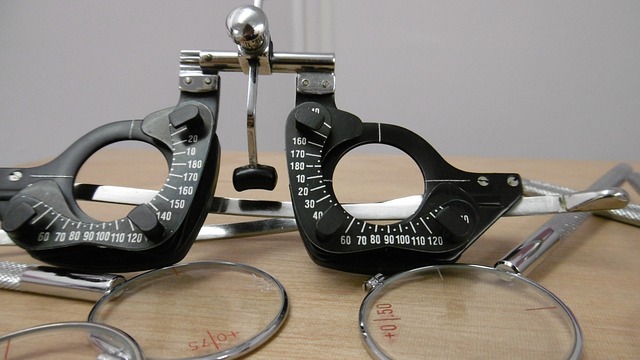Iron deficiency anemia is a common health issue in the UK, characterized by insufficient iron affecting haemoglobin production in red blood cells. The National Health Service (NHS) provides accessible blood testing services to detect this early through Complete Blood Count (CBC) tests and ferritin assessments. These initial tests help identify anemic conditions and can also indicate high cholesterol levels, which may be associated with iron deficiency anemia. A Cholesterol Blood Test UK is instrumental in this process, offering detailed measurements of blood lipids to not only gauge cardiovascular risk but also aid in diagnosing iron deficiency anemia. Further evaluation using serum iron, transferrin saturation, and total iron-binding capacity may be necessary for confirmation and treatment planning. Regular Cholesterol Blood Tests enable effective management of iron deficiency anemia, improving patient outcomes by ensuring early detection and intervention. Healthcare providers in the UK utilize these tests as a key tool for comprehensive health assessments, considering the interrelation between cholesterol levels and iron metabolism in maintaining red blood cell health. This approach is vital for managing both cardiovascular and hematological disorders effectively within the UK healthcare system.
Iron deficiency anemia is a prevalent health concern, with its detection and management critical for maintaining overall well-being. In the UK, healthcare professionals rely on a combination of Complete Blood Count (CBC) and ferritin tests to accurately diagnose this condition. This article delves into the nuances of these diagnostic tools, shedding light on their importance in early anemia detection. Moreover, the cholesterol blood test emerges as a multifaceted diagnostic aid in the UK, extending beyond its traditional role in cardiovascular health assessment. Understanding the implications of test results becomes paramount for individuals facing potential iron deficiency. Through expert insights and comprehensive data, this article aims to equip readers with the knowledge necessary to navigate the complexities of iron deficiency anemia diagnosis and the role of cholesterol levels therein.
- Understanding Iron Deficiency Anemia and Its Diagnosis in the UK: The Role of Complete Blood Count (CBC) and Ferritin Tests
- The Importance of Cholesterol Blood Test UK in Anemia Detection: Beyond Cardiovascular Health
- Interpreting Your Results: What Do Low Iron Levels and Cholesterol Readings Indicate in the Context of Anemia?
Understanding Iron Deficiency Anemia and Its Diagnosis in the UK: The Role of Complete Blood Count (CBC) and Ferritin Tests

Iron deficiency anemia is a common health condition characterised by insufficient iron levels in the body, leading to a reduced capacity for haemoglobin within red blood cells, resulting in anemia. In the UK, understanding and detecting this condition early are pivotal for effective treatment and management. The primary diagnostic tools for iron deficiency anemia include Complete Blood Count (CBC) tests and ferritin level assessments. A CBC test provides a comprehensive analysis of the blood components, including red blood cell count, hemoglobin, hematocrit, white blood cells, and platelets, which can indicate whether anemia is present. If anemia is suspected, healthcare providers often follow up with a ferritin test, which measures the amount of ferritin—a protein that stores iron in the body—in the bloodstream. Elevated levels of cholesterol, as detected by a Cholesterol Blood Test UK, can sometimes accompany iron deficiency anemia, necessitating a comprehensive evaluation of both lipid and iron profiles for overall health monitoring. In cases where initial tests suggest iron deficiency, further investigation with additional markers like serum iron, transferrin saturation, and total iron-binding capacity may be conducted to confirm the diagnosis and guide treatment decisions. The NHS in the UK provides accessible and reliable blood testing services to facilitate the early detection of iron deficiency anemia, thereby improving patient outcomes and quality of life.
The Importance of Cholesterol Blood Test UK in Anemia Detection: Beyond Cardiovascular Health

The Cholesterol Blood Test UK plays a pivotal role in assessing an individual’s risk for cardiovascular diseases, yet its utility extends beyond this realm. In the context of iron deficiency anemia detection, this test is invaluable. It provides a comprehensive analysis of blood lipid levels, which includes cholesterol, triglycerides, and high-density lipoprotein (HDL) or ‘good’ cholesterol. For those suffering from anemia, or at risk, monitoring these components is crucial as they can affect the body’s iron metabolism and red blood cell production. Iron deficiency anemia can manifest due to iron loss, reduced dietary iron intake, or impaired iron absorption, and early detection through regular cholesterol blood tests in the UK can help identify these issues before symptoms become pronounced. This is particularly important as anemia can be an indicator of underlying health conditions and its timely identification can lead to targeted treatments, improving overall well-being and quality of life. Moreover, the Cholesterol Blood Test UK aids healthcare providers in diagnosing iron deficiency anemia by revealing any anomalies in the blood’s composition that may point towards iron depletion. This test is readily accessible across the UK, ensuring that individuals have easy access to vital health information necessary for preventing and managing both cardiovascular and hematological conditions.
Interpreting Your Results: What Do Low Iron Levels and Cholesterol Readings Indicate in the Context of Anemia?

When interpreting the results of a blood test for iron deficiency anemia, low iron levels are a clear indicator of the condition. The test measures ferritin, hemoglobin, hematocrit, and transferrin saturation to determine if there is an iron deficiency. Low ferritin levels, which reflect the body’s stored iron, are particularly telling. This can be due to blood loss or insufficient dietary intake of iron. It’s also important to note the role of a cholesterol blood test UK in this context. Cholesterol plays a supportive role in bile acid production and in transporting fat-soluble vitamins, including vitamin K and vitamin E, which are essential for red blood cell health. Abnormal cholesterol levels can sometimes be associated with anemia, although the exact relationship is complex and multifactorial. Elevated cholesterol might indicate other underlying conditions that could contribute to iron deficiency, such as inflammation or chronic disease. Consequently, when assessing low iron levels, it’s also crucial to consider cholesterol readings as part of a comprehensive health evaluation. This holistic approach allows healthcare professionals to address both the anemia and any associated conditions effectively, ultimately leading to better patient outcomes. In the UK, where the Cholesterol Blood Test is readily available, this interplay between iron levels and cholesterol profile is particularly relevant for early detection and management of anemia.
In conclusion, iron deficiency anemia remains a prevalent concern in the UK’s health landscape, one that is reliably detected through specific blood tests, including the Complete Blood Count (CBC) and Ferritin Tests. The Cholesterol Blood Test UK, traditionally associated with cardiovascular risk assessment, has also emerged as an important tool in the early identification of this condition. Understanding the results from these tests is crucial for appropriate treatment and management, ensuring patients receive the care necessary to maintain their health and well-being. Regular screening, coupled with public awareness, can significantly improve the outcomes for those affected by iron deficiency anemia.
